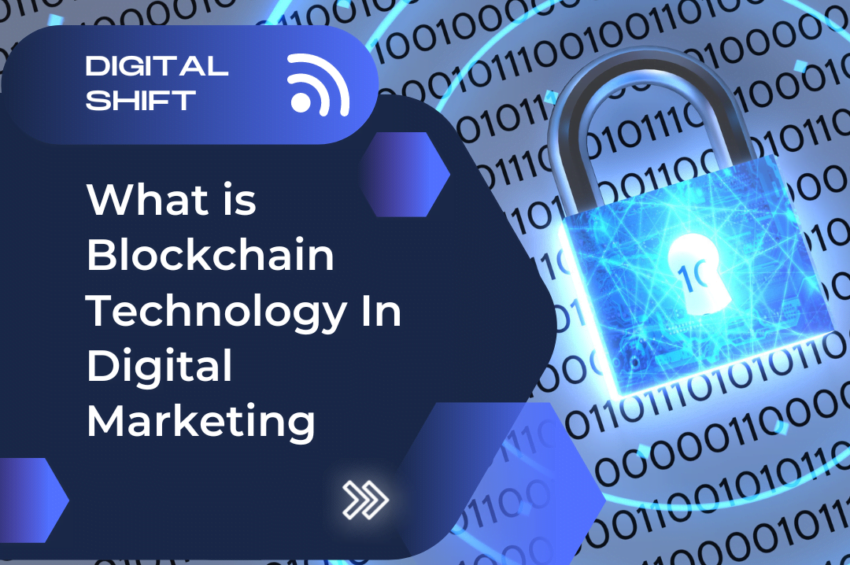
1. Introduction to Blockchain Technology
2. Understanding Blockchain’s Impact on Digital Marketing
3. Enhancing Transparency and Security in Digital Advertising with Blockchain
4. Leveraging Smart Contracts for Efficient Digital Marketing Operations
5 Introduction to Tokenization and Cryptocurrencies
6. Improving Data Management and Consumer Privacy with Blockchain
7. Exploring Blockchain-Based Influencer Marketing and Content Creation
8. Challenges and Future Prospects of Blockchain in Digital Marketing
Blockchain technology has emerged as a revolutionary force across various industries, and digital marketing is no exception. With its decentralized and transparent nature, blockchain has the potential to transform the way digital marketing operates, enhancing trust, security, and efficiency throughout the ecosystem. In this article, we explore the impact of blockchain in digital marketing, delving into its potential applications, benefits, and challenges. From enhancing transparency and security in digital advertising to leveraging smart contracts and tokenization, we will examine how blockchain is reshaping the landscape of digital marketing and paving the way for a more decentralized, secure, and efficient future.
1. Introduction to Blockchain Technology
1.1 What is Blockchain?
Blockchain is more than just a buzzy tech term – it’s a revolutionary technology that has the potential to transform various industries, including digital marketing. At its core, blockchain is a distributed ledger system that securely records and verifies transactions across multiple computers or nodes. Instead of relying on a central authority, blockchain uses cryptography and consensus algorithms to ensure trust, transparency, and immutability.
1.2 How Does Blockchain Work?
Blockchain operates on a decentralized network where every participant has a copy of the ledger, making it impossible for any single entity to control or manipulate the data. Transactions are grouped into blocks, verified by network nodes, and added to the chain in a chronological order. The use of cryptographic hashes ensures the authenticity and integrity of the information, while consensus mechanisms like Proof of Work or Proof of Stake prevent malicious activities.
1.3 Key Features and Benefits of Blockchain
Blockchain offers several key features that make it appealing for various applications, including digital marketing. Its decentralized nature ensures that no single entity has control over the data, making it resistant to censorship and tampering. The transparency of the blockchain allows for real-time auditing and verifiability. Additionally, its cryptographic security safeguards against fraud and unauthorized access. With blockchain, businesses can achieve increased trust, efficiency, and cost savings.
2. Understanding Blockchain’s Impact on Digital Marketing
2.1 Revolutionizing Trust and Transparency in Digital Marketing
In the digital marketing landscape, trust and transparency are crucial for building and maintaining customer relationships. Blockchain has the potential to revolutionize these aspects by providing an immutable record of transactions and interactions. This transparency can help combat ad fraud, fake influencers, and deceptive practices, ensuring that marketers and consumers can trust the data they are presented with.
2.2 Disrupting Traditional Advertising Models
Blockchain technology has the potential to disrupt traditional advertising models by eliminating intermediaries and reducing ad fraud. With blockchain, advertisers can directly connect with publishers, ensuring that their ads reach the intended audience without unnecessary intermediaries taking a cut. This disintermediation can lead to more efficient ad campaigns and better value for advertisers.
2.3 Potential Applications of Blockchain in Digital Marketing
Blockchain’s potential applications in digital marketing are vast. It can be used to authenticate user identities, prevent unauthorized data tracking, and even reward consumers for their attention or data sharing. Additionally, blockchain-based platforms can facilitate peer-to-peer content sharing and decentralized ad networks, empowering both marketers and consumers.
3. Enhancing Transparency and Security in Digital Advertising with Blockchain
3.1 Challenges in Digital Advertising
Digital advertising faces several challenges, including ad fraud, lack of transparency, and concerns over data privacy and security. These issues erode trust between advertisers and consumers and hinder the industry’s growth potential.
3.2 How Blockchain Addresses Transparency and Security Concerns
Blockchain technology can address these transparency and security concerns by providing an immutable and auditable record of ad transactions. Advertisers can track their spending, verify ad placements, and ensure that their ads are being seen by genuine users. This increased transparency helps combat ad fraud and provides assurance to marketers that their ad budgets are being used effectively.
3.3 Real-world Examples of Blockchain Implementations in Digital Advertising
Several companies are already exploring blockchain solutions in digital advertising. Brave, a privacy-focused web browser, uses blockchain to reward users with cryptocurrency for opting into advertisements. AdEx is an open-source protocol that uses blockchain to create a transparent and fraud-resistant ad exchange. These examples highlight the real-world potential of blockchain in enhancing transparency and security in digital advertising.
4. Leveraging Smart Contracts for Efficient Digital Marketing Operations
4.1 Understanding Smart Contracts
Smart contracts are self-executing contracts with predefined rules and conditions encoded on a blockchain. These contracts automatically execute and enforce the terms without the need for intermediaries. By leveraging smart contracts, digital marketing operations can become more efficient, secure, and cost-effective.
4.2 Benefits of Smart Contracts in Digital Marketing
Smart contracts eliminate the need for manual verification, paperwork, and delays in the execution of marketing agreements. They provide a transparent and auditable record of transactions, ensuring that all parties involved have visibility into the agreed-upon terms. Smart contracts also enable automation of payment settlements, optimizing cash flow and reducing administrative burdens.
4.3 Use Cases of Smart Contracts in Digital Advertising
Smart contracts can be applied in various digital advertising use cases, such as influencer marketing campaigns, affiliate marketing programs, and programmatic ad buying. For instance, smart contracts can automatically release payments to influencers based on predefined performance metrics, eliminating the need for intermediaries and reducing payment disputes.
In summary, blockchain technology has the potential to transform the digital marketing landscape by enhancing trust, transparency, and security. With its ability to revolutionize traditional advertising models and streamline marketing operations through smart contracts, blockchain is poised to reshape the future of digital marketing.5. Tokenization and Cryptocurrencies: Revolutionizing Digital Marketing Transactions
5 Introduction to Tokenization and Cryptocurrencies
Welcome to the world of tokenization and cryptocurrencies, where digital marketing transactions are undergoing a revolutionary transformation. Tokenization refers to the process of converting rights to an asset into a digital token on a blockchain. Cryptocurrencies, such as Bitcoin and Ethereum, are digital or virtual currencies that utilize cryptography for secure transactions.
5.2 Utilizing Cryptocurrencies in Digital Marketing
Cryptocurrencies have gained popularity in recent years, and their integration into digital marketing offers several advantages. They enable seamless and immediate cross-border transactions, eliminating the need for traditional intermediaries like banks. Cryptocurrencies also provide increased security and reduce the risk of fraudulent activities, thanks to the decentralized nature of blockchain technology.
By embracing cryptocurrencies, marketers can provide customers with more payment options, cater to a wider global audience, and enhance the overall user experience. Incorporating cryptocurrencies into digital marketing strategies can also attract tech-savvy customers who are interested in exploring innovative payment methods.
5.3 Tokenization for Improved Digital Advertising Transactions
Tokenization plays a significant role in revolutionizing digital advertising transactions. By tokenizing digital assets, such as ad space or user data, advertisers can engage in more efficient and transparent transactions. Tokenization enables advertisers to have complete control and ownership of their digital assets, reducing the risk of fraudulent practices and increasing accountability.
Additionally, tokenization allows for the creation of token-based loyalty programs, incentivizing consumers to engage more actively with brands. Digital advertising transactions powered by tokenization can streamline the payment process, ensuring fair compensation for content creators and intermediaries involved in the advertising ecosystem.
6. Improving Data Management and Consumer Privacy with Blockchain
6.1 Challenges in Data Management and Consumer Privacy
Data management and consumer privacy have become pressing concerns in the digital marketing landscape. Companies struggle to secure customer data and maintain transparency in data handling practices. Moreover, consumers are becoming increasingly cautious about sharing their personal information due to concerns of data breaches and misuse.
6.2 Role of Blockchain in Secure Data Management
Blockchain technology offers a promising solution to address the challenges of data management and consumer privacy. With blockchain, data can be stored in a decentralized and immutable manner, significantly reducing the risk of unauthorized access and tampering. This provides consumers with greater control over their personal information while allowing businesses to securely collect and use customer data for marketing purposes.
By utilizing blockchain for data management, companies can ensure transparency, accountability, and integrity throughout the entire data lifecycle. Blockchain-based data management systems empower consumers by giving them the ability to grant or revoke access to their data, allowing for more personalized and targeted marketing campaigns.
6.3 Safeguarding Consumer Privacy through Blockchain Solutions
Blockchain solutions can safeguard consumer privacy by offering enhanced security and consent management. Smart contracts on the blockchain can automate and enforce data privacy policies, ensuring that consent is obtained and respected at every stage of data processing. This not only builds trust between businesses and consumers but also enables companies to comply with evolving data protection regulations.
Blockchain-based identity verification systems also provide a secure and transparent means of verifying user identities without compromising privacy. Such systems can prevent fraud and identity theft, enhancing the overall security of digital marketing transactions.
7. Exploring Blockchain-Based Influencer Marketing and Content Creation
7.1 Traditional Influencer Marketing vs. Blockchain-Based Influencer Marketing
Influencer marketing has become a popular strategy for brands to reach their target audience. However, traditional influencer marketing often faces challenges like fake followers, inaccurate analytics, and lack of transparency. This is where blockchain-based influencer marketing shines.
By utilizing blockchain technology, influencer marketing campaigns can benefit from increased transparency, trust, and accuracy. Blockchain provides a transparent record of influencer marketing transactions, ensuring that advertisers know exactly what they are paying for. Additionally, blockchain-based systems can verify the authenticity of influencers and their followers, minimizing the risk of fraud.
7.2 Advantages of Blockchain in Influencer Marketing
Blockchain-based influencer marketing platforms enable direct peer-to-peer interactions, eliminating the need for intermediaries. This reduces costs, enhances efficiency, and ensures that influencers receive fair compensation for their work. With blockchain, influencers can also have greater control over their personal data, allowing them to protect their privacy and maintain ownership of their content.
7.3 Content Creation and Distribution on Blockchain Platforms
Blockchain platforms offer opportunities for content creators to showcase their work and receive fair compensation. By utilizing blockchain-based content distribution networks, creators can have more control over their intellectual property and receive direct payments from consumers. This disintermediation allows for a more direct and efficient relationship between creators and consumers.
Blockchain platforms also enable content creators to collaborate and interact with their audience in new and exciting ways. Through decentralized applications (DApps), creators can create unique experiences, engage with fans, and monetize their content in innovative ways.
8. Challenges and Future Prospects of Blockchain in Digital Marketing
While blockchain holds immense potential in revolutionizing digital marketing, several challenges need to be addressed. Scaling blockchain technology to handle massive transaction volumes, ensuring regulatory compliance, and educating marketers on blockchain implementation are some of the hurdles that need to be overcome.
However, the future prospects of blockchain in digital marketing are promising. As technology evolves and adoption increases, we can expect to see enhanced transparency, efficiency, and security in digital marketing transactions. Blockchain has the power to reshape the digital marketing landscape, empowering both businesses and consumers with decentralized and trustless solutions.In conclusion, blockchain technology holds immense promise for the world of digital marketing. It offers solutions to long-standing challenges such as transparency, security, and data management, while also enabling new opportunities for efficient transactions and content creation. As blockchain continues to evolve and gain wider adoption, it is crucial for marketers and businesses to stay informed about its potential applications and future prospects. By embracing this disruptive technology, digital marketers can position themselves at the forefront of innovation, driving growth, trust, and value in the ever-evolving digital marketing landscape.
FAQ
How does blockchain enhance transparency in digital advertising?
Blockchain technology provides a decentralized and transparent platform for digital advertising. It ensures that all transactions and interactions within the advertising ecosystem are recorded on a public ledger, visible to all participants. This transparency reduces the chances of fraud, allows advertisers to verify ad placements, and gives consumers confidence in the authenticity of the advertising content.
2. Can blockchain improve data management and consumer privacy in digital marketing?
Yes, blockchain has the potential to significantly enhance data management and consumer privacy in digital marketing. By storing data on a decentralized and immutable ledger, blockchain provides a secure and transparent way to handle sensitive consumer information. It allows individuals to have more control over their data, granting or revoking access as needed, while also ensuring that their personal information is protected from unauthorized access or tampering.
3. How can smart contracts benefit digital marketing operations?
Smart contracts, powered by blockchain, can automate and streamline various aspects of digital marketing operations. These self-executing contracts automatically execute predefined conditions, eliminating the need for intermediaries and reducing administrative overhead. They can be used for tasks such as verifying ad impressions, managing affiliate marketing agreements, or facilitating microtransactions, making digital marketing operations more efficient and cost-effective.
4. What are the challenges of implementing blockchain in digital marketing?
While blockchain technology holds immense promise, there are still challenges to consider when implementing it in digital marketing. Some of the key challenges include scalability, as blockchain networks can become slow and congested with increased transaction volumes. Interoperability between different blockchain platforms and existing marketing systems is also a consideration. Moreover, regulatory frameworks and industry-wide adoption are important factors that need to be addressed for widespread implementation of blockchain in the digital marketing ecosystem.



